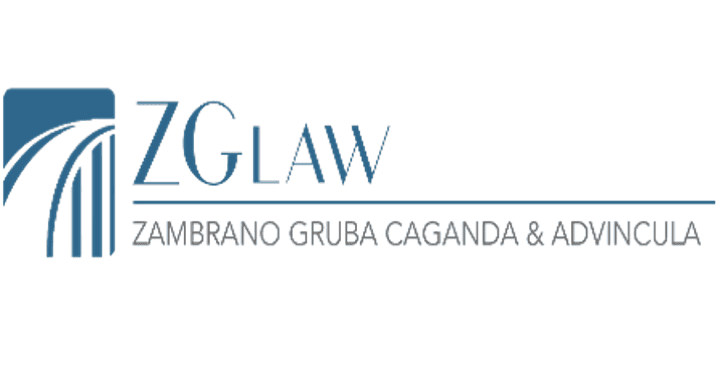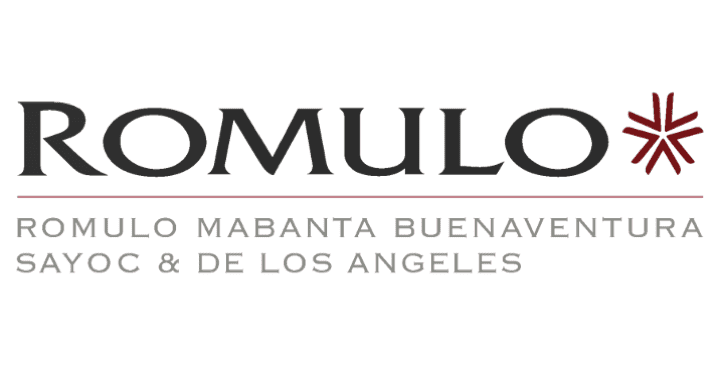Climate change continues to be an increasing focus for government and regulators in the Philippines. The Philippines’ Nationally Defined Contribution (NDC) submitted to the United Nations Framework Convention on Climate Change stipulates that it will reduce its greenhouse gas emissions by 75% by 2030 (of which 72.29% is conditional on multilateral support under the Paris Agreement).1
The NDC is based on the Climate Change Act of 2009, and two key policy documents; the National Framework Strategy on Climate Change 2010-2022,2 which sets out the Philippines’ principles of climate change mitigation and adaptation, the risks arising from climate change, and overarching strategies for mitigation and adaptation, and the National Climate Change Action Plan 2011-2028,3 which outlines the Philippine Government’s comprehensive commitments to respond to climate risks that involves both the public and the private sectors.
The Philippine Constitution recognizes the citizens’ “right to health” and “right to a balanced and healthful ecology,” with corresponding obligations of the state to “protect and promote the right to health of the people,”4 and to “protect and advance the right of the people to a balance and healthful ecology in accord with the rhythm and harmony of nature.”5 The Philippine Supreme Court recognized “the right of Filipinos to a balanced and healthful ecology” that carries with it “the correlative duty to refrain from impairing the environment.”6 It also held that even without the constitutional provisions on the rights to health and to a balanced and healthful ecology, the same would constitute part of the law of the land because the Philippines is a signatory to the Universal Declaration of Human Rights and the Alma Conference Declaration of 1978 which recognize health as a fundamental human right.7
In May 2022, the Commission on Human Rights of the Philippines concluded an investigation into climate change and human rights. While non-binding, the Commission’s findings and recommendations recognized that climate change poses a threat to individual’s human rights; international treaties and resolutions, including the Universal Declaration on Human Rights, form part of Philippine law; and therefore entities incorporated or doing business in the Philippines in the value chain of high-emission companies could be compelled to undertake human rights due diligence.8
Regulators have also made their perspective on climate change risk clear. The Securities and Exchange Commission’s (SEC) Code of Corporate Governance9 encourages publicly-held companies to be socially responsible in their dealings with the communities where they operate by pursuing “sustainable development” which means that companies not only comply with existing regulations, but also voluntarily employ value chain processes that take into consideration economic, environment, social and governance issues and concerns, which includes climate change.10
The Bangko Sentral ng Pilipinas (BSP or Philippine Central Bank) has approved frameworks requiring financial institutions to embed sustainability principles in their corporate governance framework, and incorporate physical and transition climate change risks into their risk management frameworks.11 The BSP has published a circular requiring banks to establish an environmental and social risk (E&S risk) management system and integrate sustainability principles into their investment activities.12 In September 2022, the BSP published guidelines on the implementation of E&S risk management systems in financial institutions pursuant to these frameworks.13 The guidelines state that boards and senior management are expected to understand the linkages between E&S risk (including climate risks) and their bank’s operations, should institutionalise the adoption of E&S risk management at the bank, and should integrate E&S risks into their stress testing. These developments may change the perception of climate risks within financial frameworks in the Philippines which may have impacts for non-financial companies.
The Philippines may see increasing litigation against corporations in respect of climate change. The Philippine Supreme Court promulgated “Rules of Procedure for Environmental Cases,”14 to “govern the procedure in civil, criminal and special civil actions before [trial and appellate courts] involving enforcement or violations of environmental and other related laws, rules and regulations.”15 The Rules formally recognize “citizen suits” that allow any Filipino citizen in representation of others, including minors or members of generations yet unborn, to file an action to enforce rights or obligations under environmental laws, with power by the courts to issue an environmental protection order; allows the issuance of a writ of kalikasan as a remedy to a natural or juridical person, entity authorized by law, people’s organization, non-governmental organization, or any public interest group on behalf of persons whose constitutional right to a balanced and healthful ecology is violated, or threatened with or by an unlawful act or omission of a public official or employee, or private individual or entity, any possible large-scale ecological threats.
In light of these developments, it is apparent that climate change poses material financial and litigation risk by government and regulators in the Philippines.
Directors’ Duties and Climate Change
Under Philippine Corporation Law, the board of directors is vested directly by law with nearly all corporate powers to conduct all business and to control all properties of the corporation.16 Consequently, directors are bound by the fiduciary duty of obedience — to pursue corporate affairs in accordance with the purpose for which it is constituted and in compliance with the law; and the duty of diligence — to exercise corporate powers with the diligence of a prudent person, in good faith and in the interests of the corporation and its stockholders. The corporate governance framework for publicly-held companies extends these fiduciary duties to other stakeholders of the company, which includes customers, creditors, employees, suppliers, investors, as well as the government and the community in which they operate.17
Under the doctrine of centralized management, Philippine Corporation Law constitutes directors as fiduciaries in fulfilling their company’s long-term economic, moral, legal and social obligations towards the shareholders and other stakeholders, with a mandate to maximize the organization’s long-term success, creating sustainable value for its shareholders, stakeholders and the nation. Under the common-law doctrine of business judgment rule, the manner of fulfilment of directors’ fiduciary duties to the company, its stockholders and other stakeholders is addressed to the board’s business judgment.18 The exercise of that business judgment, even when it causes damage to the corporation, its stockholders or other stakeholders, does not make directors’ personally liable,19unless it is shown that the directors’ have in the process violated the law, acted with fraud, negligence or bad faith.20
When it comes to climate change, the emerging “role of directors” — which in turn defines the potential liabilities to which they are exposed to in relation to climate change — is a bit nuanced, if not bifurcated. Under Philippine corporate governance framework which adheres to the ‘comply or explain’ approach, directors are encouraged (not mandated) to “adopt a clear and focused policy on the disclosure of non-financial information, with emphasis on the management of economic, environmental, social and governance (EESG) issues of its business, which underpin sustainability … [and] should adopt a globally recognized standard/ framework in reporting sustainability and non-financial issues.”21 Other than the disclosure obligations for publicly-listed companies on ESG matters (see discussions below), there are no regulations specifically providing the requirements or processes by which directors are to monitor, manage and take steps to mitigate climate change risks. Therefore, the fulfillment of their fiduciary duties is addressed to the exercise of their business judgment. In the absence of fraud, gross negligence or bad faith, stockholders and other affected stakeholders cannot ascribe a breach of fiduciary duties against directors whose approach on climate change risks is within their business judgment to pursue; much less can they be held personally liable for exercising their business judgment when there is no showing of fraud, gross negligence or bad faith.
The deference to the board’s business judgment also means that boards are able to take actions to mitigate the impacts of climate change on their company without exposing themselves to the risk of liability for breaching their duties. For instance, directors that implement a strategy to address climate impacts, to ensure the long-term viability of the company during the energy transition — even where this may risk incurring greater costs in the short term — will be protected from fiduciary liability unless they have violated the law, or acted with fraud, negligence or bad faith.
On the other hand, the emerging “role of directors in climate change” under the Climate Change Act and related environmental laws imposes a duty on directors to refrain from harming the environment and to refrain from committing any of the “prohibited acts” laid down by the state in various environmental laws; otherwise, directors could be held both criminally and civilly liable. Unless environmental laws relating to climate change make directors liable for a corporation’s violation of prohibited act, the prevailing rule is that when such prohibited acts are committed by the corporation, directors as such do not become criminally punishable, but only those directors, officers and employees who are directly responsible for the commission of the prohibited acts shall be penalized.
While the enumeration of “prohibited acts” under the various environmental laws provide for the specified areas when directors may be held criminally liable for corporate offenses, the same may be the legal basis — especially when the commission by the corporation of such prohibited acts is egregious — under Section 30 of the Revised Corporation Code for stockholders and other affected stakeholders to pursue legal action to make the directors personally liable (civil) for “wilfully and knowingly assenting to patently unlawful acts of the corporation,” or at least for “gross negligence or bad faith in directing the affairs of the corporation.”
While the failure of directors to pro-actively pursue climate change activism does not necessarily expose them to personal, criminal or administrative liabilities, the pursuit by non-government organizations and public-interest groups through citizen suits constitute the graver risk to directors as a threat to their professional reputation as the stewards of the private corporate sector’s mandate to pursue sustainable development. The Philippines is now experiencing climate change activism, coupled with the very accommodating litigation rules on environmental cases, and the current demand of local and international investors in companies that have a clear and focused policy on ESG matters.
In November 2022, CCLI commissioned a legal opinion on ‘Directors’ Duties & Responsibilities and Disclosure Obligations Under Philippine Law On Climate Change Risks’ (the Legal Opinion).22 The Legal Opinion emphasises the case for corporate directors on the board of Philippines companies to consider climate-change related risks in the discharge of their fiduciary duties of obedience and diligence to fulfil their companies’ long-term legal, economic, moral and social obligations towards their shareholders and other stakeholders. The Legal Opinion further stated:
“Directors play a critical role in managing climate change risks to which the corporate business enterprise is exposed, as well as in fulfilling the companies’ social responsibilities towards the protection of the environment.”
Private corporations, especially publicly-held companies which control much of the productive resources in the country, must pursue sustainable development in their corporate strategies. This means not only complying with existing environmental rules and regulations and disclosing material climate-related risks, but also collaborating closely with the government and civil society in contributing solutions to the challenges of climate change facing the country.
Directors’ Disclosure Obligations and Climate Change
When it comes to sustainability reporting in general, under the ‘comply or explain’ approach of the Code of Corporate Governance issued by the SEC, publicly-held companies are mandated to ensure that material and reportable non-financial and sustainability issues are disclosed,23 under the recommendation to the board to have a clear and focused policy on the disclosure of non-financial information with emphasis on the management of economic, environmental, social and governance (EESG) issues of its business which underpin sustainability, and to adopt a globally recognized standard/ framework in reporting sustainability and non-financial issues.24
The SEC’s Sustainability Reporting Guidelines for Publicly Listed Companies are based on, and refer to, the Task Force on Climate-related Financial Disclosures (TCFD) recommendations, as well as other global reporting standards. These guidelines include reporting on environmental risks and impacts, including the board’s governance, strategy, risk management and metrics and targets in respect to climate-related risks and opportunities. Publicly-listed companies must report in accordance with these guidelines on a ‘comply or explain’ basis and submit the sustainability report as part of its annual reportorial requirements with the SEC.25 The SEC has made sustainability reporting mandatory for publicly listed companies.26
Disclosures in the sustainability report should reflect the publicly-listed companies’ significant economic, environmental, and social impacts, including climate-related risks and opportunities and UN sustainability goals, and should consider the reasonable expectations and interests of key shareholders. Further, such disclosures should be quantifiable and measurable, adequately providing a comprehensive record of the company’s non-financial performance for the relevant reporting period.
It is interesting to note that the specific disclosures for climate-related risks and opportunities fall under the category of economic disclosures for sustainability reporting, which emphasises the recognition by the SEC of climate change as a material financial risk for publicly-listed companies. Philippine companies have leeway in determining what may constitute material climate-related risks that arise in the pursuit of the companies’ business operations, plans and strategies. This is consistent with the policy of the Philippine government and its regulators allowing company discretion in determining and disclosing its corporate climate policy, particularly for publicly-listed companies which are subject to the materiality threshold under the PSE disclosure rules.
The broad materiality threshold provided under the PSE disclosure rules requires publicly-listed companies to disclose “any material fact or event that occurs which would reasonably be expected to affect investors’ decisions in relation to trading the securities”27 and “such information [which] may reasonably be expected to materially affect market activity and the price of its securities”.28 The broad materiality threshold would include the disclosure of climate-related risks particularly when such impacts trading and price of company shares.
Based on a review of current disclosure rules for publicly-listed companies in the Philippines, the obligation to disclose and submit the sustainability report, including material climate-change disclosures, is primarily a corporate responsibility, as it is the company itself which faces the administrative penalties of reprimand, fine, delisting or revocation of license for failure to do so. Directors are not directly and personally liable for corporate disclosures, unless they make false or misleading statements of material fact in required SEC filings which are tantamount to “market manipulation,”29 or “fraudulent transactions,” as defined under the Securities and Regulation Code.30
Practical Implications for Directors
With the increased climate change activism and continued public interest litigation on the environment prevailing in the Philippines, directors of private corporations are potentially exposed to the following actions: (a) criminal and civil prosecution by the Philippine government for engaging their companies to violate prohibited acts under various environmental laws; (b) citizen suits for violating the right of the people to a healthful environment or violation of environmental laws; and (c) administrative penalties for failure to properly quantify and disclose climate change risks.
In order to ensure that they are fulfilling their fiduciary duties to their companies, and to reduce litigation exposure (e.g., by citizen suits), directors of Philippine companies, especially those of publicly-held companies, must ensure that they act on a fully informed basis, with due diligence and care in addressing the physical, transition and reputational risks facing their company by:
- putting in place and overseeing a sound enterprise risk management framework that identifies key risks exposures relating to economic, environmental, social and governance (EESG) factors consonant with achieving the company’s strategic objectives;
- devoting time and attention in board meetings necessary to developing climate risk mitigation plan, including monitoring and evaluating the effectiveness of the company’s climate change risk management processes; and
- communicating to the various stakeholders climate change risks and opportunities facing their company and the status of implementation of risk management strategies.
- For large publicly-held companies, it is additionally recommended for their boards to constitute a Sustainability Committee with a clear charter to mandate and oversee sustainability principles and climate action.
Contributors:
- Cesar L. Villanueva, Villanueva Gabionza & Dy Law
- Lily K. Gruba, Zambrano Gruba Caganda & Advincula Law
- Angelo Patrick F. Advincula, Zambrano Gruba Caganda & Advincula Law
- Joyce Anne C. Wong, Romulo Mabanta Buenaventura Sayoc & de los Angeles Law
 |  |  |
